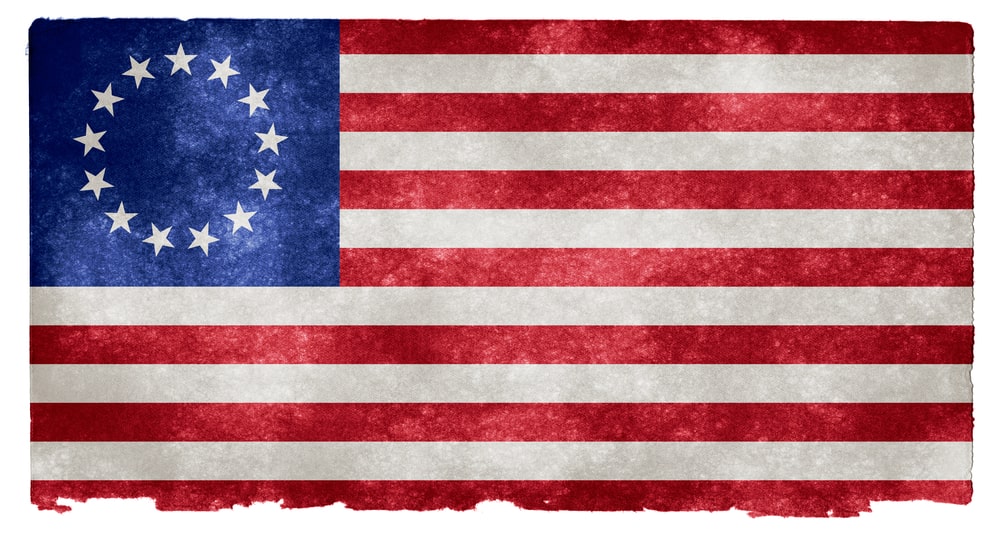“The Constitution only guarantees the American people the right to pursue happiness. You have to catch it yourself.” – Benjamin Franklin
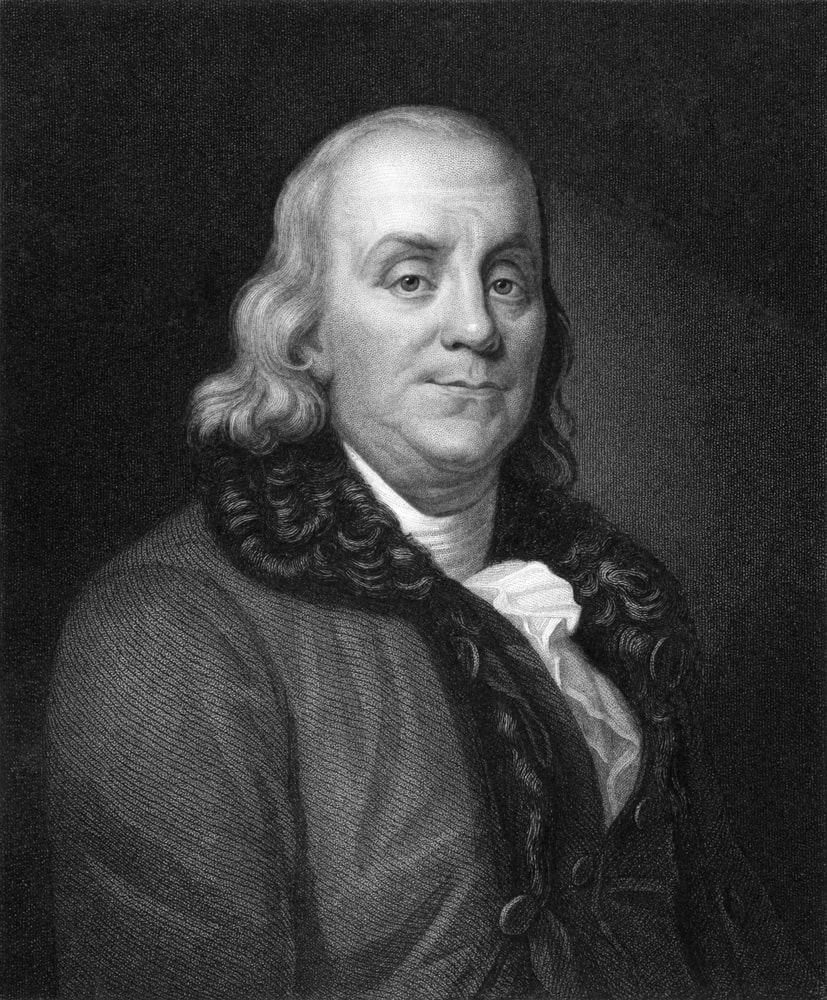
(Photo: Portrait of Benjamin Franklin)
The Fourth of July marks a great and long-remembered day in American history. It was on July 4th in 1776 that the American colonies declared their independence from Great Britain and became an independent nation. In 1870, Independence Day became a federal holiday, though it wasn’t until 1938 that it became a paid federal holiday.
Our founding fathers consist of seven influential men. They are George Washington, Thomas Jefferson, John Adams, Benjamin Franklin, James Madison, John Jay, and Alexander Hamilton. While each of these men had faults and made mistakes, together they created our nation and continue to be remembered for their patriotism and courage.
In honor of Independence Day, let’s reflect on one of our founding fathers, Benjamin Franklin: his life, his legacy, and the ways we have remembered and memorialized him.
Biography
Benjamin Franklin was born on January 17, 1706. He was one of 17 children born to a man who made soap and candles. He had very little formal education, and at the age of 12, he apprenticed to his brother, who introduced Franklin to the printer’s trade. During his apprenticeship, he read voraciously and taught himself to write. It was the beginning of a lifelong passion for the written word.
In 1730, Franklin married Deborah Read, and they eventually had two children together, Francis and Sarah. Still in the printing business, Franklin soon began to print currency for Pennsylvania, the Pennsylvania Gazette, and Poor Richard’s Almanack (which he also wrote). With his printing business and his investments, he was one of the wealthiest colonists in North America by the 1740s.
Starting in 1736, he began to involve himself in political office, beginning as a clerk of the Pennsylvania legislature. By 1748, he was wealthy enough that he retired, though he remained a silent partner in his business. He turned his attention to other pursuits, both scientific and political.
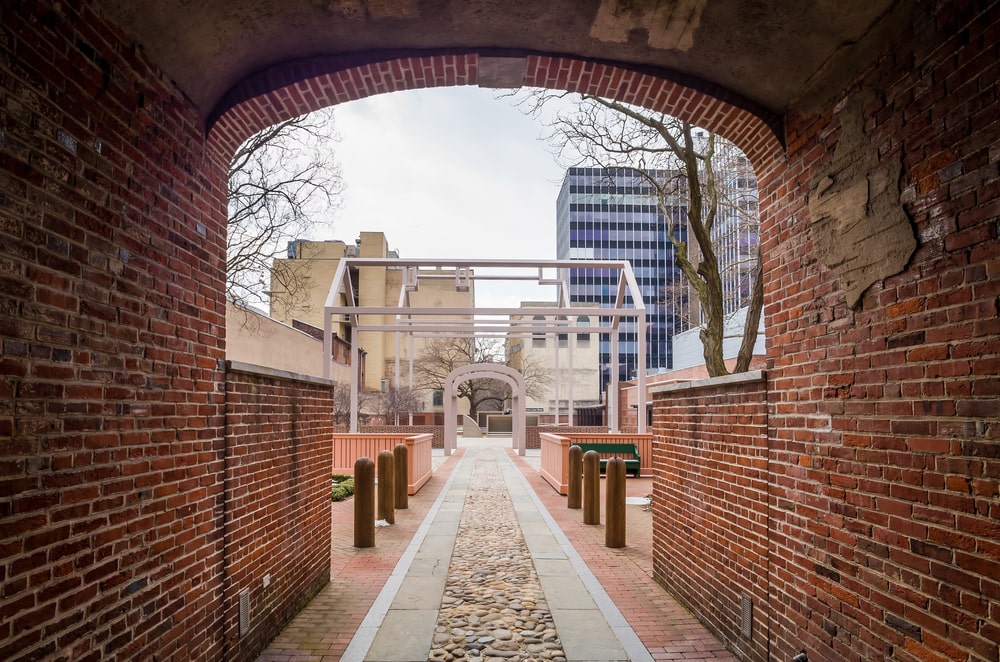
(Photo: Site of Franklin Museum in Philadelphia, PA)
In the following years, Franklin played a larger role in politics, even spending 18 years in London representing the Pennsylvania Assembly. In 1762, he returned to Philadelphia with the intention of returning to England. But with the passage of the Stamp Act in 1765 and subsequent events, he stayed in North America and sought to bridge the growing gulf between Great Britain and the colonies.
In 1775, he was elected to the Second Continental Congress. The following year, in July 1776, he helped to draft the Declaration of Independence and signed it along with many others. In October 1776, he went to France to petition for military aid. His efforts to secure military and diplomatic ties with France were successful in 1778. The French played a key role in the colonies’ winning of the Revolutionary War.
He lived in France until 1785 when he returned to the United States of America. He died in April 1790.
Franklin’s Legacy
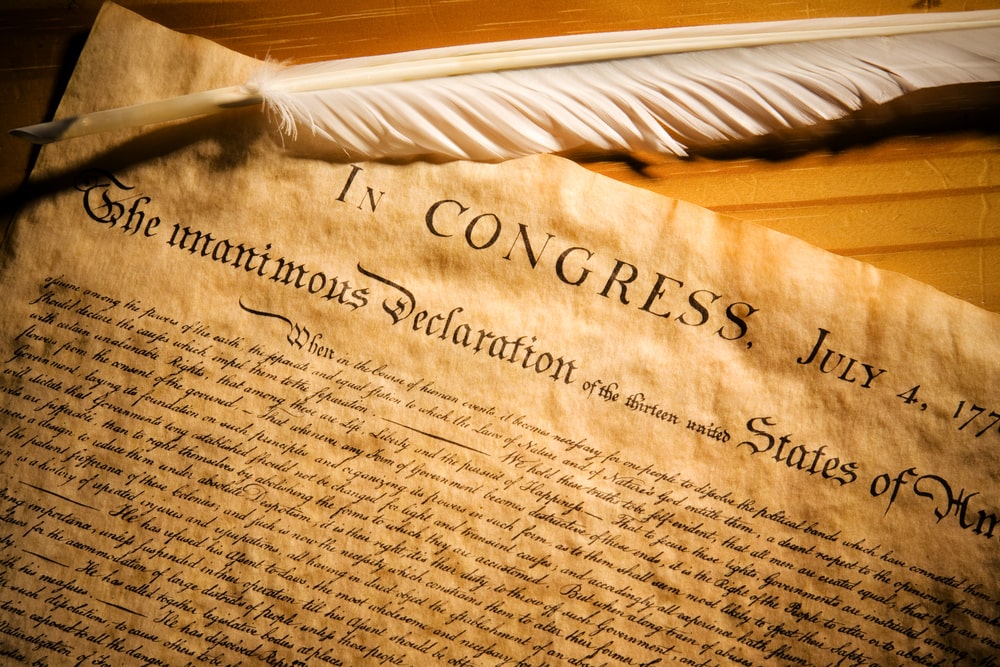
(Photo: Declaration of Independence, which Franklin helped create)
As we look back at Benjamin Franklin’s life, none of us can deny that he left a legacy. Though he lived most of his life caught between worlds, he had a significant impact on the founding of our nation. In his lifetime, he was one of the most famous figures of the Western world. He was a printer, an inventor, a statesman, a diplomat, and a writer. His scientific discoveries included fundamental discoveries about electricity, the invention of bifocals, the odometer, and the glass harmonica. As a public servant, he had a hand in writing the Declaration of Independence, the Articles of Confederation, and his diplomatic efforts in France played a key role in winning the war.
At the time of his death, he was in disfavor with his friends and family in the United States. This was mainly due to his having lived so much outside of the United States. But nonetheless, an estimated 20,000 mourners gathered for his funeral in Philadelphia.
In June 1790, the Frenchman Count Mirabeau suggested to the French National Assembly that they, too, should wear mourning to honor Franklin. He said:
“Would it not become us, gentlemen, to join in this religious act, to bear a part in this homage, rendered, in the face of the world, both to the rights of man and to the philosopher who has most contributed to extend their sway over the whole earth? Europe, enlightened and free, owes at least a token of remembrance and regret to one of the greatest men who have ever been engaged in the service of philosophy and liberty. I propose that it be decreed that the National Assembly, [over] three days, shall wear mourning for Benjamin Franklin.”
Franklin Remembered
Even now, we don’t have to look far to see the many ways that Franklin has been remembered and memorialized. Many schools, counties, towns, universities, and parks have been named for him. Fittingly, as he once printed currency, his face is on the $100 bill. And now, a museum stands where his home and print shop once did, and his written works are remembered and quoted. Ever heard “A friend in need is a friend indeed” or “A penny saved is a penny earned”? Those are Benjamin Franklin’s words, and they continue to live on.
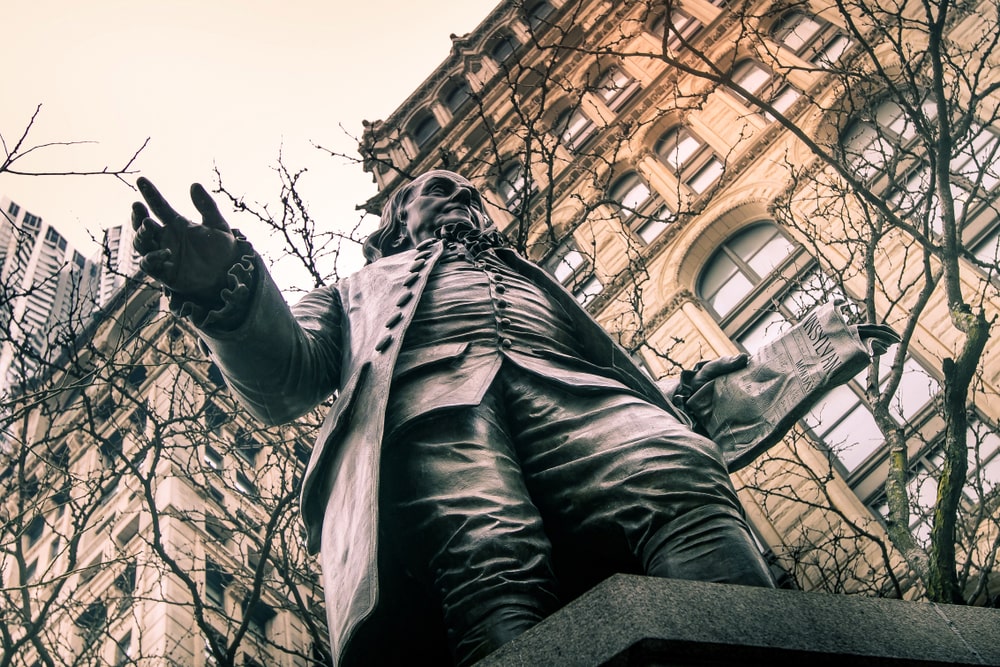
(Photo: Statue of Benjamin Franklin)
It is through permanent memorials, like schools, museums, and statues, that we ensure a lasting tribute for those who have been loved and lost. Memorials also allow us, as people, to honor those we wish to always remember. Just as we create memorials for our heroes, we also create them for our loved ones in the form of grave markers, scholarship funds, or memorial donations.
The Importance of Legacy
As we reflect on Benjamin Franklin’s life, think also of your own life. Are you leaving a legacy that you and your family can be proud of? Have you shared what’s most important with those you care about? If you look at Franklin’s life, his legacy was peppered with both good and bad. It’s up to you whether you have an accidental legacy or an intentional one. Whether your legacy empowers others or brings them low.
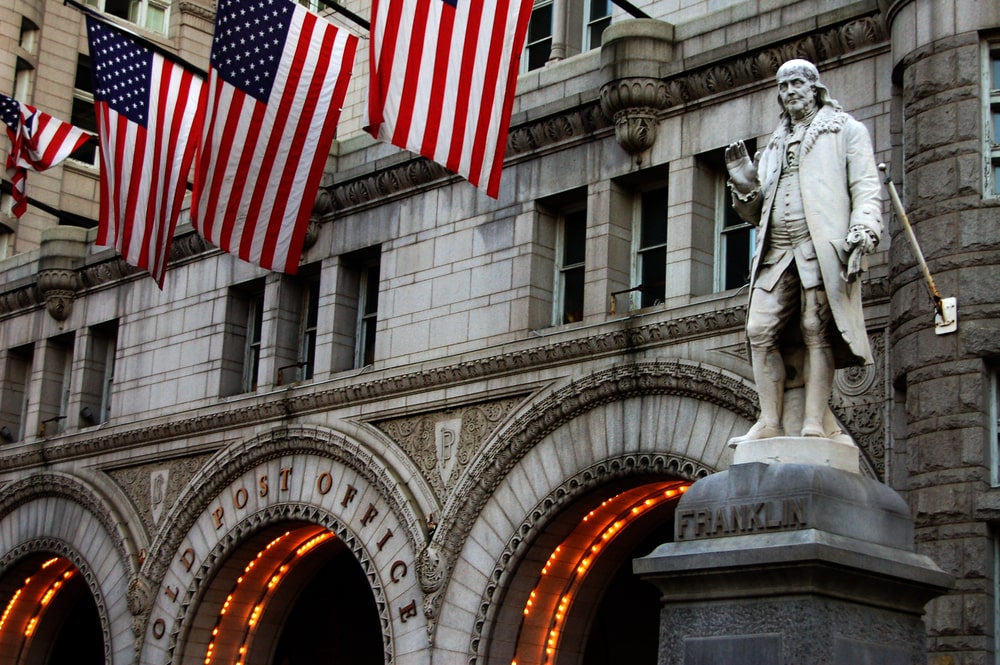
(Photo: Statue of Benjamin Franklin outside the Old Post Office Building in Washington, D.C.)
With our legacies, we contribute to the future. The things we do and say affect the lives of others and have the power to create good or bad. What we do matters. What Benjamin Franklin did matters. Most of us are not prominent people. Our names are unknown to thousands, or even millions, of people. But then, fame and glory aren’t the point of a legacy. Instead, it is our responsibility as good men and women to create legacies that will take our families and the next generation to a level we can only imagine.
Let’s learn from Benjamin Franklin’s successes and mistakes and live lives that positively impact others and create legacies worth remembering.

